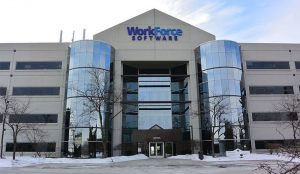As the chief financial officer of Workforce Software, the coronavirus outbreak has forced Bob Feller to draw on his experiences working through the 2008 financial crisis and the 2000 dot.com burst.
"I don't want to say I saw the big stock drop coming, but I sort of did," he said regarding the pandemic. "What happens is, everybody tightens their belt. So, you have to be prepared as CFO, and CEO, to take steps to get your company through this, even if it's a short-term disruption."
From 2003 to 2007, Feller worked at Salesforce as a corporate controller and eventually as the vice president of finance. The SaaS company was then in its nascent stages but it was here where he established his most successful business model: spend big.
"As head of revenue, it was natural to be the budget-stopper," Feller explained on the CFO Thought Leader podcast. "But I could really see that from a working capital standpoint this [recurring revenue model could become] a cash cow very quickly."
Feller brought in the best salespeople, paid them well, and continued to splash money on databases and systems that would ensure a boost in bookings.
"We paid some crazy commission rates because we had to get people who were working at Oracle and Siebel and they were used to [getting paid] on licenses," he said. "We were spending a crazy amount of money on databases and servers to build it all up. But we were cash flow positive much quicker than you would have thought given our actual P&L."
Today, Feller suggests that this model and attitude is what will get businesses through this tough time. His advice to other SaaS companies is to have enough cash to get through the crisis, and this starts with jumping on opportunities as they come along. "You don't want to stop doing business," he said. "You have to continue your service to your customer. We're a SaaS business, so how can we reassure our customers that our data centers will stay online? If they call in, they will get support. So, there's an operational process we're going through to make sure that, hey, the employees are working from home. Can they still do the essential customer-facing things?"
He also expects the crisis to be short-lived because unlike the 2008 financial crisis, the downturn stems from external forces rather than a flaw in the system.
"The financial crisis was systemic, and took almost a decade to unwind," he said. "This feels like more of an external shock. But, still, the financial shock is going to be real. So you have to be prepared with actions that, hey, what if your customers just stopped paying your bills?"
























